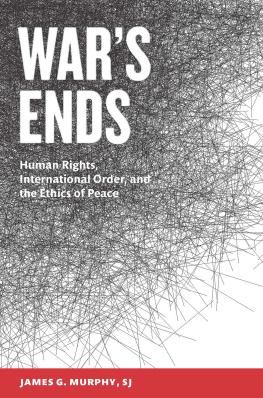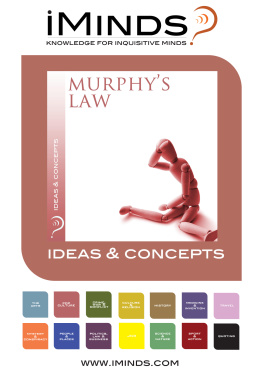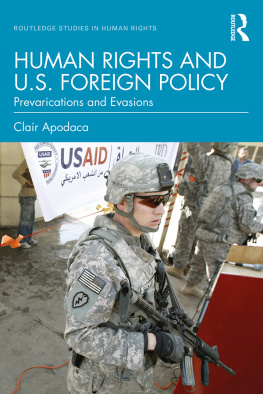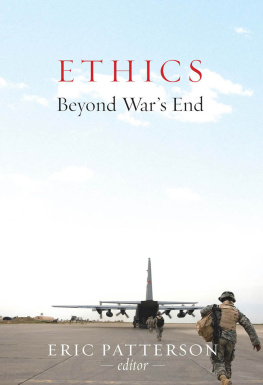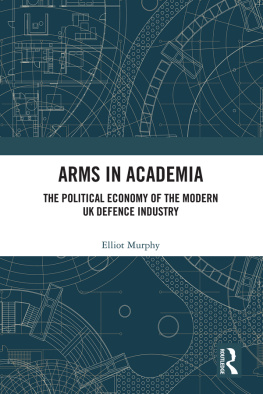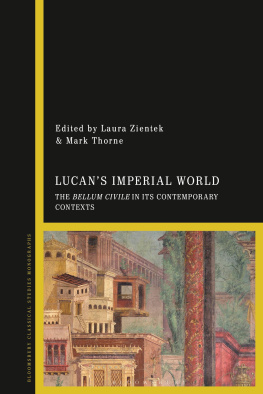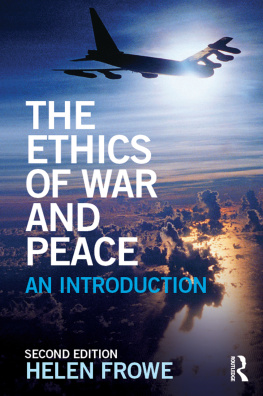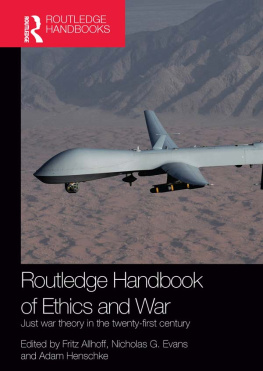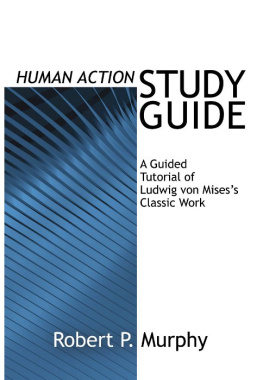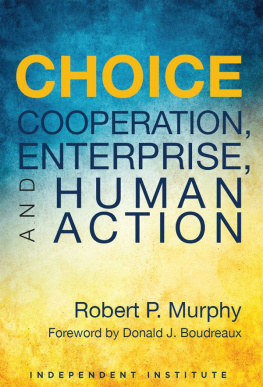2014 Georgetown University Press. All rights reserved. No part of this book may be
reproduced or utilized in any form or by any means, electronic or mechanical,
including photocopying and recording, or by any information storage and
retrieval system, without permission in writing from the publisher.
Library of Congress Cataloging-in-Publication Data
Murphy, James G., 1953
Wars ends : human rights, international order, and the ethics of peace / James G. Murphy.
pages cm
Includes bibliographical references and index.
ISBN 978-1-62616-027-9 (pbk. : alk. paper)
1. Just war doctrine. 2. Security, InternationalMoral and ethical aspects. I. Title.
U21.2.M876 2014
172'.42dc23 2013018247
This book is printed on acid-free paper meeting the requirements of the American National
Standard for Permanence in Paper for Printed Library Materials.
21 20 19 18 17 16 15 14 9 8 7 6 5 4 3 2
First printing
Printed in the United States of America
Acknowledgments
In the course of planning and writing this book, I received much support and encouragement from many people.
My late father, Frank Murphy, educated me long ago on the primacy of the political, and the importance of civilian control of the military. He first got me thinking about these things, so it is fitting that he be acknowledged first.
I am deeply grateful to Pat Riordan, fellow-Jesuit, friend, and colleague at Milltown Institute of Theology and Philosophy in Dublin, Ireland, for many years. He read the entire draft carefully, and his critical comments made this a much better work than it would otherwise have been. His work on the common good has also been influential in the conception of this book. My thanks go also to the anonymous reviewers for Georgetown University Press, whose helpful comments were enlightening.
The intellectual stimulus of conversations with Bob Araujo, Tom Carson, Rudi Casals, Chris Curran, George Dempsey, and Vera Price was particularly valuable. The Jesuits of Ireland and the Jesuits of Chicago supported the project financially, and my colleagues in the philosophy departments of the Milltown Institute and Loyola University Chicago provided stimulating contexts for doing serious philosophical writing. There are many othersfriends, philosopher-colleagues, and Jesuitswhose personal and professional support must be acknowledged. Among these I thank Peter Bernardi, Bob Bireley, Blake Dutton, Mire Garvey, David Ingram, John Langan, Tom Layden, Michel McGril, Paul Moser, Marie Murphy, Donal Neary, Des OGrady, Brian Paulson, Tom Phelan, Saythala Lay Phonexayphova, Vera Price, David Quinn, Tom Regan, James Smyth, Vincent Twomey SVD, Gvidas Vainorius (who sadly did not live to see this book in print), Mark Waymack, Vicki Wike, and David Yandell.
Chapter 1
War and Moral Theory
Reiterated over time, our arguments and judgments shape what I want to call the moral reality of war.
Michael Walzer, Just and Unjust Wars
[War is] the concept that makes it possible to understand the forms as well as the existence of peace and order.
Pasquino, Political Theory of Peace and War
The just war tradition is alive and well today. After emerging in ancient Rome and flourishing in medieval Europe, it experienced a partial decline in the early modern period, 16001900, but it has enjoyed a revival since World War I (191418).
The tradition developed under two headings: the morality of going to war (jus ad bellum as it was known in Latin), which concerns the state, and the morality of conducting war (jus in bello), which concerns mainly the army commanders. In the last twenty years, some ethicists have suggested that a third element should be added to the theory: the morality of building postwar peace (jus post bellum).
In the 16001900 period, the jus in bello part of the tradition flourished, focusing on the moral and legal rules for conducting war, noncombatant immunity, and duties to prisoners. By contrast, the jus ad bellum part was widely considered to be effectively out of date because it seemed inapplicable in a world of sovereign states with no international authority.
This development represents a significant step away from the early modern era when the ruler was considered to be above the law and to have a general right to go to war whenever he judged that the interests of the state required it. It is, by the same token, a significant step toward the kind of thinking that informs classical just war thought. However, there is still much less clarity about the morality of going to war than there is about the morally acceptable ways of waging war. In addition, the shift in thinking just described is by no means universal, and treatments of jus ad bellum must take that fact into account. The challenge is to apply jus ad bellum criteria in a world midway between the supremacy of national raison dtat, and effective acceptance of the rule of international law in the restraint of war and armed aggression.
Main Themes
As others have done, I usually refer to just war tradition rather than just war theory, since there is no precisely worked-out theory of justice or right with respect to war. It is a broad tradition, a field with many different approaches.
My goal in this book is to offer a conceptual analysis of the jus ad bellum criteria in order to facilitate their application to contemporary cases. The conception I develop is secular, not religious, although religious authors will sometimes be cited. Lists of the criteria vary. Robert Holmes cites the list offered by the US Catholic bishops as typical: just cause, competent authority, comparative justice, right intention, last resort, probability of success, and proportionality. Brian Orend lists just cause, right intention, public declaration by proper authority, last resort, probability of success, and proportionality (Orend 2006, 32; and 2008). The list I propose is competent authority, just cause, right intention, probability of success, last resort, and proportionality. I accept the continuing relevance of most of the traditional criteria, but my interpretation of some criteria may diverge from traditional views. I explore each in turn, hoping to offer a distinctive interpretation of most of them. I also argue that there is a logical order among the criteria.
Certain topics will not be treated. First, I will not discuss moral conduct of war (jus in bello) for three reasons: (a) as noted, much more has been written on jus in bello than on jus ad bellum, (b) jus ad bellum is independent of jus in bello, and (c) jus ad bellum has some explanatory and ethical primacy over jus in bello.
Second, I will have little to say about moral obligations arising from the ending of war (jus post bellum), although my discussion of right intention will touch on it (Orend 2006). Third, this book is not a historical study of the development of just war thought. Fourth, it is not an exposition of any particular theorists views on war.
Individual chapters will be devoted to the jus ad bellum

